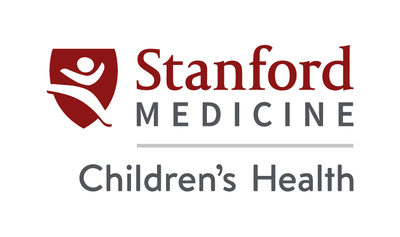Using telehealth virtual visits, the Stanford Medicine Virtual PrEP Program, in partnership with Stanford Children’s Health, connects youth with pediatric and adolescent care providers specifically trained to provide sexual health counseling, labs, and adherence support for pre-exposure prophylaxis (PrEP).
STANFORD, Calif., Nov. 19, 2020 /PRNewswire-HISPANIC PR WIRE/ — Stanford Children’s Health has launched the Stanford Medicine Virtual Pre-exposure Prophylaxis (PrEP) Program for Adolescents and Young Adults, which provides accessible and comprehensive HIV-prevention services, including PrEP, from a dedicated team of providers for adolescents and young adults 25 years and younger across the state of California.

Using a secure telehealth system, youth enrolled in the Stanford Medicine Virtual PrEP Program, in partnership with Stanford Children’s Health, are connected with a pediatric and adolescent care provider specifically trained to provide sexual health counseling, labs, and adherence support for PrEP—a daily pill that when taken correctly reduces the risk of contracting HIV by more than 99 percent. PrEP is recommended for all adults and adolescents who are at risk (or anticipated risk) for HIV infection.
Serving the unique needs of youth
In California, youth account for approximately 20 percent of new HIV diagnoses, yet they have the lowest reported PrEP use compared with older age groups. Stanford Children’s Health is the largest health care organization in the country that is working to address this gap in care for young patients and focused on providing PrEP access specifically for youth.
“Our mission is to improve access to quality PrEP care for adolescents and young adults,” said Geoff Hart-Cooper, MD, founder and medical director of the Virtual PrEP Program. “Discussing sexual health, particularly among adolescents who may still receive care from a pediatrician, can be uncomfortable for patients and even some providers. Our team of dedicated PrEP Navigators are specifically trained to provide an accepting, inclusive, and confidential environment to meet the needs of these patients and start individuals on treatment as soon as possible.”
Care provided through the Virtual PrEP Program is conducted remotely using a patient’s mobile device or computer. Following a virtual intake visit, patients are mailed an at-home testing kit; ongoing labs are conducted every three months at a local clinical laboratory, PrEP prescriptions are fulfilled via a patient’s local pharmacy, and patients have biweekly video calls with their dedicated PrEP Navigator. The program is available to anyone in the state of California regardless of whether they are an existing Stanford patient, and in almost all cases the cost is supported through various patient assistance programs.
“The remote nature of the Virtual PrEP Program eliminates the need for patients to travel to a care facility, making ongoing care convenient and efficient, which is especially important during the COVID-19 pandemic,” Hart-Cooper said. “Virtual care allows us to meet youth where they are, even during transition to college or other moves, and offers an added layer of confidentiality, as it allows providers to communicate with patients one-on-one, without involving a parent or other guardian if that is the patient’s preference.”
Bridging the gap for providers
In addition to providing care for patients, the Virtual PrEP Program offers provider-training webinars to educate pediatricians throughout California about prescribing and monitoring PrEP.
“Some providers, particularly pediatricians, may not be aware of or trained to provide HIV-prevention tools, such as PrEP, or may not have experience discussing sexual health with young patients, which can make it difficult for youth to disclose sexual behavior, or lead to concerns about confidentiality,” said Megen Vo, MD, associate medical director of the Virtual PrEP Program. “By connecting patients with providers specifically dedicated to administering PrEP support, the Virtual PrEP Program is mitigating these existing barriers to treatment, and the remote nature of the program enables us to accept youth referrals from physicians all over the state of California.”
The impact of COVID-19: Addressing inequities in health care
According to the Centers for Disease Control and Prevention, HIV disproportionately affects minorities, impacting one in two Black men who have sex with men (MSM) and one in four Latinx MSM, compared with one in 11 white MSM. Furthermore, white MSM are significantly more likely to report PrEP awareness, or engage in discussions about it with a provider, than Black or Latinx MSM. At the same time, these racial and ethnic minorities are most likely to be affected by COVID-19.
“Throughout the pandemic, providers have witnessed a dramatic decrease in PrEP use among new and continuing patients alike, and most commonly among minority patients younger than 26 years old,” said Carrie Chan, NP, associate medical director of the Virtual PrEP Program. “Our virtual care model can improve access to PrEP among racial and ethnic minorities, as well as provide specialized youth support, which is more critical than ever as we face the economic insecurities and health outcomes that are disproportionately affecting these groups during the COVID-19 pandemic.”
For more information, visit prep.stanfordchildrens.org, or call the Stanford Children’s Health Teen and Young Adult Clinic at (650) 497-2701.
Media contact:
Kate DeTrempe
[email protected]
(650) 485-9487
About Stanford Children’s Health
Stanford Children’s Health, with Lucile Packard Children’s Hospital Stanford at its center, is the Bay Area’s largest health care system exclusively dedicated to children and expectant mothers. Our network of care includes more than 65 locations across Northern California and more than 85 locations in the U.S. Western region. As part of Stanford Medicine, a leading academic health system that also includes Stanford Health Care and Stanford University School of Medicine, we are cultivating the next generation of medical professionals and are at the forefront of scientific research to improve children’s health outcomes around the world. We are a nonprofit organization committed to supporting the community through meaningful outreach programs and services and providing necessary medical care to families, regardless of their ability to pay. Discover more at stanfordchildrens.org.
Logo – https://mma.prnewswire.com/media/508605/Packard_Childrens_Logo.jpg
SOURCE Stanford Children’s Health






